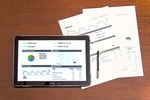
Will UnitedHealth Stock Recover?
Shares of embattled health insurance giant UnitedHealth (NYSE:UNH) plummeted by…


Shares of embattled health insurance giant UnitedHealth (NYSE:UNH) plummeted by…

Though certainly less well-known than the huge tech businesses that…

Planet Fitness (NYSE:PLNT) has had a difficult 12 months, retreating…
Market Cap: $4.6T
P/E Ratio: 65x
Market Cap: $3.8T
P/E Ratio: 35x
Market Cap: $3.8T
P/E Ratio: 29x
ICON plc [ICLR] is down 39.93% over the past day.
Cognex Corp. [CGNX] is up 36.39% over the past day.
IPG Photonics Corp. [IPGP] is up 35.78% over the past day.